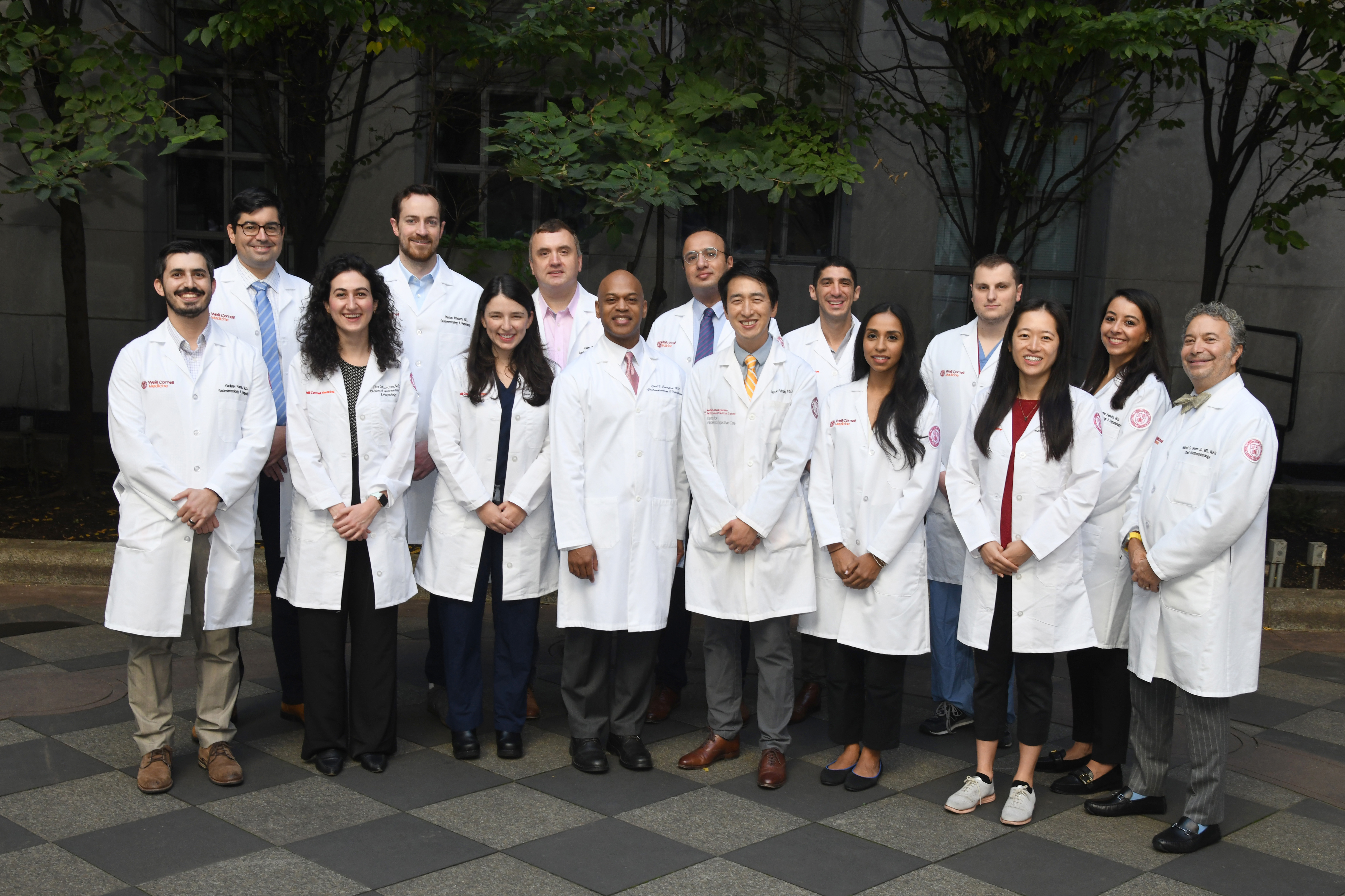
The Weill Cornell Medicine Fellowship in Gastroenterology and Hepatology is a three-year program located at NewYork-Presbyterian Hospital/Weill Cornell Medical Center. The fellowship seeks to attract the best and brightest trainees who have an interest in pursuing a career in academic medicine. Our fellowship program offers a full range of conferences and extensive interaction with highly skilled gastrointestinal pathologists, interventional and diagnostic radiologists, and surgeons. In addition, our fellows have the opportunity to work with and teach an outstanding group of Weill Cornell medical students and house officers. We currently accept four fellows into the program annually.
To learn more about the program, watch our video on our fellowship here.
First YearGeneral GI Consult: 6 months Second YearGeneral GI Consult: 1 month Third YearGeneral GI Consult: 1 month |
The first year is largely consultative. Fellows maintain a weekly ambulatory patient practice from which they derive many of their outpatient procedures. Inpatient activities involve an active consult service, daily endoscopy, and a broad range of conferences. First-year fellows are on call an average of one weekend per month and one weeknight per week.
Second- and third-year fellows assume the remainder of the weeknight and weekend call. Six months of the second year of the fellowship is protected for participation in clinical or basic research. Third-year fellows continue the research projects developed and generated in their second year. They also have an opportunity to pursue specific areas of interest, including in embedded clinics in inflammatory bowel disease, hepatology, liver transplantation, GI motility, and cancer screening and prevention.
Fellows are expected to be involved in basic or clinical research. Opportunities for basic research exist at NewYork-Presbyterian Hospital/Weill Cornell Medical Center and Rockefeller University. The Jill Roberts Institute for Research in Inflammatory Bowel Disease conducts pioneering investigations into the microbiome, as well as research in immunology, hepatology and GI malignancies.
Fellows are expected to submit abstracts to local and national meetings, prepare original papers for submission to peer-reviewed journals, and develop clinical protocols under the tutelage of a faculty mentor.
There is a didactic program available for training in clinical investigation, involving course work in epidemiology, clinical trial study design, biostatistics, outcomes assessment, and ethics of research. Additionally, there are master's programs offered in Clinical Research and Health Care Policy, which interested fellows can obtain during their three-year fellowships.
You can also learn more about our Advanced Fellowships: Inflammatory Bowel Disease (IBD), Advanced Endoscopy, Transplant Hepatology, and Obesity and Endobariatric.